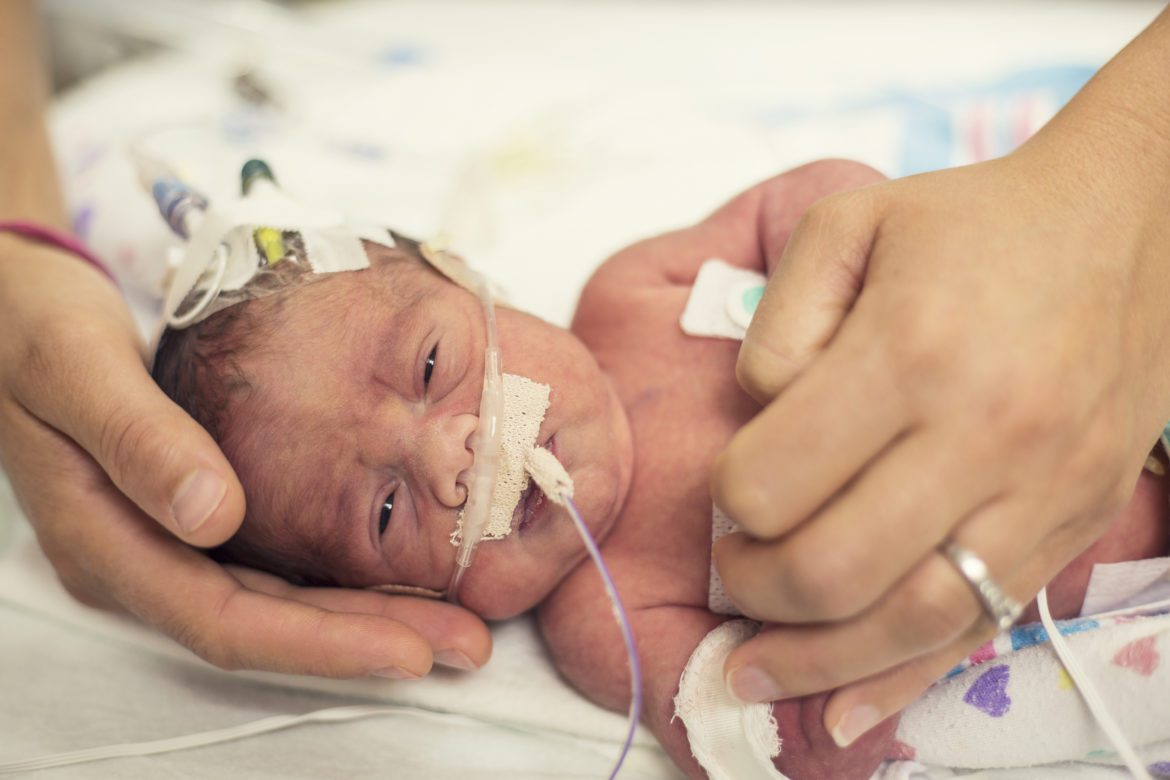When babies are born prematurely or with complex medical conditions, they often need care in the neonatal intensive care unit (NICU). NICU care can be stressful for babies, in part because they’re separated from their parents, but also because some treatments can be painful. Since all this stress can have negative effects on baby’s growth and development, neonatal nurses use therapies such as comfort sucking, skinto- skin care, kangaroo care, swaddling, positioning, and infant massage to help babies heal quickly and develop normally. Studies show that these soothing techniques—especially infant massage—are beneficial not only for babies, but for their parents too!
Infant Massage History and Techniques
Massage is an ancient therapeutic technique that was first documented inChinese medical literature more than4,000 years ago. Massage therapy is the use of therapeutic touch to stimulate the skin, muscles, bones, and joints, using techniques such as stroking, friction, stretching, compression, and the passive movement of joints.Today, parents all over the world use infant massage as part of their daily bath and bedtime routine, and to enhance bonding.
Infant Massage in the NICU
During pregnancy, your baby experiences constant gentle stimulation through contact with amniotic fluid and the walls of your uterus, which is important to their development. But when babies are born prematurely, they miss out on this constant connection with you. Instead, touch is often limited to medically needed care, which can feel painful and stressful for the baby. Infant massage provides your baby with the much-needed positive, comforting touch and helps reduce the physical separation between you and your precious baby. Neonatal nurses recognized the need for new therapies to reduce stress in their tiny patients and began studying massage therapy in the NICU in the 1980s. We now know that infant massage not only reduces stress, but it enhances neurodevelopment and speeds healing in babies!
Massage Benefit: Infant Weight Gain
One of the most powerful benefits of infant massage can be measured in grams and ounces. A simple 15-minute massage three times a day has been shown to help preemies grow faster and stronger! Your baby’s nurse can teach you how to gently touch and massage your baby to help them meet those measurable milestones.
Massage Benefit: Shorter Hospital Stay
When baby is in the NICU, the thing nurses want most is for them to get big enough, strong enough, and healthy enough to hurry home. But before baby is ready to leave the hospital, they must meet all of their goals, including learning how to nurse or feed from a bottle. Believe it or not, infant massage can help them master this skill, so they are ready graduate from the NICU sooner! Massage Benefit: Brain Development We’ve seen three different studies so far that have shown that infant massage improves baby’s brain development. Does this mean your baby will be smarter? Maybe!
Massage Benefit: Pain Relief
While we wish it wasn’t so, some of the medically necessary steps we take to help babies survive and thrive can cause them pain. Things like IV starts, blood draws, and tape removal can be hard to handle. The good news is that research shows that infant massage can help to minimize pain during these procedures, which means there’s a lot YOU can do!
Massage Benefit: Infant Massage is good for Parents, too!
Having a baby in the NICU is really, really stressful for parents. In fact, studies show that 40% of parents of NICU babies will struggle with postpartum depression. The good news is that studies have also found that infant massage can help improve those symptoms. Touching, holding, and massaging your baby triggers the release of the feel-good “love hormone” oxytocin. This hormone helps to relieve anxiety, sadness, and depression, and helps parents feel more confident in their ability to care for their babies. And parents say it feels good to know there is something that they can do to help their babies get better.
Ready to Learn?
Infant massage is easy to learn and good for both you and baby, and your baby’s nurse can teach you how and when it is safe to do! With a baby who is so tiny and fragile, you might feel a little intimidated, and that’s normal. The main things to remember are to use firm but gentle pressure. Your baby’s nurse will teach you the kind of touch techniques that are healing and therapeutic so that baby’s little tubes and wires don’t accidentally disconnect and so that your baby doesn’t get hurt. Try to practice mindfulness and stay mentally “present” during the massage. If your baby is especially sick or unstable, it might be best to simply place and hold your steady hand on your baby. As with all things in the NICU, it’s important to watch for cues that your baby is ready, as well as subtle signs that they’ve had enough. With time, you’ll be an expert on reading your baby’s cues and responding with just the right touch. And even if they can’t tell you yet, your loving presence is exactly what your baby needs!
YOU MAY ALSO LIKE: Why Vitamin K Injection for NewBorns is needed

Comments are closed.